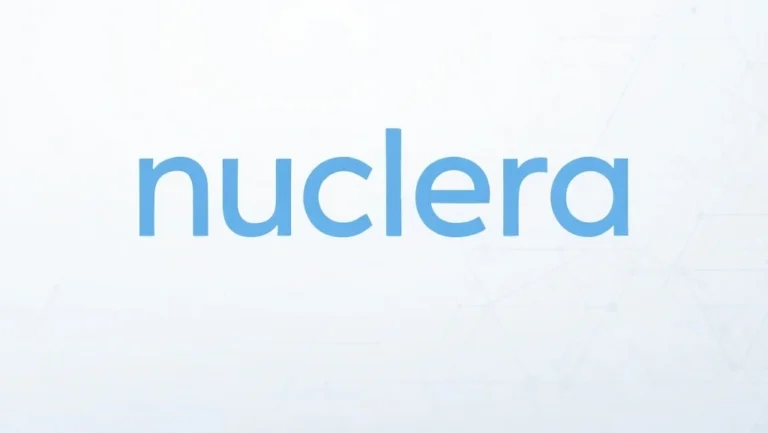
The Longevity Revolution: Six Biotech Startups Transforming How We Age
Armed with cutting-edge biological science, advanced computational tools, and deep-pocketed investors, a new wave of biotech startups is targeting what may be the next frontier in medicine: longevity. With approximately $4.8 billion funneled into the space since 2021, according to PitchBook, the long-overlooked field of aging is finally commanding serious attention.
Driving this momentum are six standout companies developing therapies that aim to not just extend life span but improve health span—the quality of life as we age. BioSpace spoke with experts and analyzed investor activity to identify the biotechs making the most promising strides in this emerging field.
Altos Labs: Reprogramming the Clock
California-based Altos Labs is perhaps the most recognized name in longevity biotech—and for good reason. The company launched in 2022 with an eye-popping $3 billion in funding and a roster of scientific heavyweights, including Nobel laureate Shinya Yamanaka and cellular reprogramming pioneer Juan Carlos Izpisua Belmonte.
Altos aims to restore cellular resilience through partial reprogramming, a process that rejuvenates cells without erasing their identity. It’s a bold approach built on preclinical work, including a 2024 study showing that partial reprogramming can extend lifespan in mice—though not without risks such as tumorigenesis.
The company is leveraging generative machine learning and computational biology to decode the complex interplay between cellular and organ health. While Altos has yet to name drug candidates, its acquisition of Dorian Therapeutics in May signals growing momentum.
BioAge Labs: Data-Driven Drug Discovery
BioAge Labs is combining AI and vast human aging datasets to uncover novel longevity pathways. Its approach is grounded in real-world longitudinal data, some spanning over 50 years, which it uses to train proprietary AI models to identify targets related to metabolic aging and other hallmarks of age-related decline.
The company has raised over $400 million to date, including a $238 million IPO in October 2024. BioAge also secured a major partnership with Novartis, worth up to $530 million, to develop therapies aimed at aging and the beneficial effects of exercise.
But it hasn’t been all smooth sailing. In late 2024, BioAge discontinued a key trial for its obesity drug azelaprag due to safety concerns. Since its IPO, the company’s stock has dropped nearly 80%.
Halia Therapeutics: Tackling “Inflammaging”
Utah-based Halia Therapeutics is targeting inflammaging—chronic, low-level inflammation that contributes to a host of age-related conditions. The company’s lead asset, HT-6184, is a Phase II candidate designed to block NEK7–NLRP3 interactions, a key driver of systemic inflammation.
CEO Dave Bearss describes Halia’s method as “mechanism-first but disease-informed.” HT-6184 is being tested in myelodysplastic syndromes (MDS), with early results pointing to hematologic and quality-of-life improvements. The company is also planning a trial that pairs HT-6184 with semaglutide to probe links between inflammation and metabolic health.
Since 2017, Halia has raised $56.3 million, including a $30 million Series C round in early 2024. It was also awarded a LabCentral Golden Ticket, giving it access to specialized lab facilities courtesy of Novo Nordisk.
Life Biosciences: Rewriting the Epigenetic Code
Boston-based Life Biosciences is working to reverse aging at the epigenetic level. As we age, chemical markers accumulate on DNA, altering gene expression in ways that drive disease. Life Bio’s Partial Epigenetic Reprogramming (PER) platform seeks to reset these markers without affecting a cell’s core identity.
Its most advanced program, ER-100, is a preclinical gene therapy targeting eye diseases like glaucoma. Clinical trials are planned for early 2026. In total, Life Bio is advancing five programs, though four remain in early discovery.
Since its founding in 2017, the company has raised over $158 million from investors like Alpha Wave Ventures. Its long-term goal: whole-body cellular rejuvenation.
Insilico Medicine: AI at the Helm
Insilico Medicine stands out for its fully integrated, AI-first approach to drug development. Based in Boston, the company uses a generative AI platform to rapidly identify targets, generate molecules, and advance them through preclinical and clinical pipelines.
Its lead candidate, rentosertib, is a TNIK inhibitor being studied for fibrosis and other aging-related diseases. TNIK plays a role in multiple biological systems implicated in aging, including cancer and metabolic disorders. Rentosertib is already in Phase IIa trials for idiopathic pulmonary fibrosis.
Insilico has raised over $110 million in its latest Series E round and secured more than $2.1 billion in out-licensing deals with companies like Exeixis, Menarini, and Sanofi.
Rubedo Life Sciences: Clearing Out the Zombie Cells
Rounding out the list is Rubedo Life Sciences, a California startup developing therapies to target and eliminate senescent cells—often called “zombie” cells—for their role in driving inflammation and tissue damage as we age.
Rubedo’s lead program, RLS-1496, entered Phase I trials in May 2025. It targets GPX4, an enzyme that blocks a form of cell death. The therapy is initially being tested for dermatological applications including psoriasis and aging skin.
What sets Rubedo apart is its use of single-cell RNA sequencing and spatial multi-omics, backed by a proprietary AI platform called Alembic. In April 2024, the company raised $40 million in a Series A round led by Khosla Ventures and Ahren Innovation Capital, with participation from LongeVC and Modi Ventures.
The Bottom Line
While the field of longevity science remains young, these six companies represent a vanguard in aging-focused biotech. Each brings a unique angle—from AI-powered platforms and stem cell reprogramming to anti-inflammatory therapies and senolytics. And with billions of dollars flowing into the space, the science of extending not just life—but quality of life—is moving from fringe to frontier.





